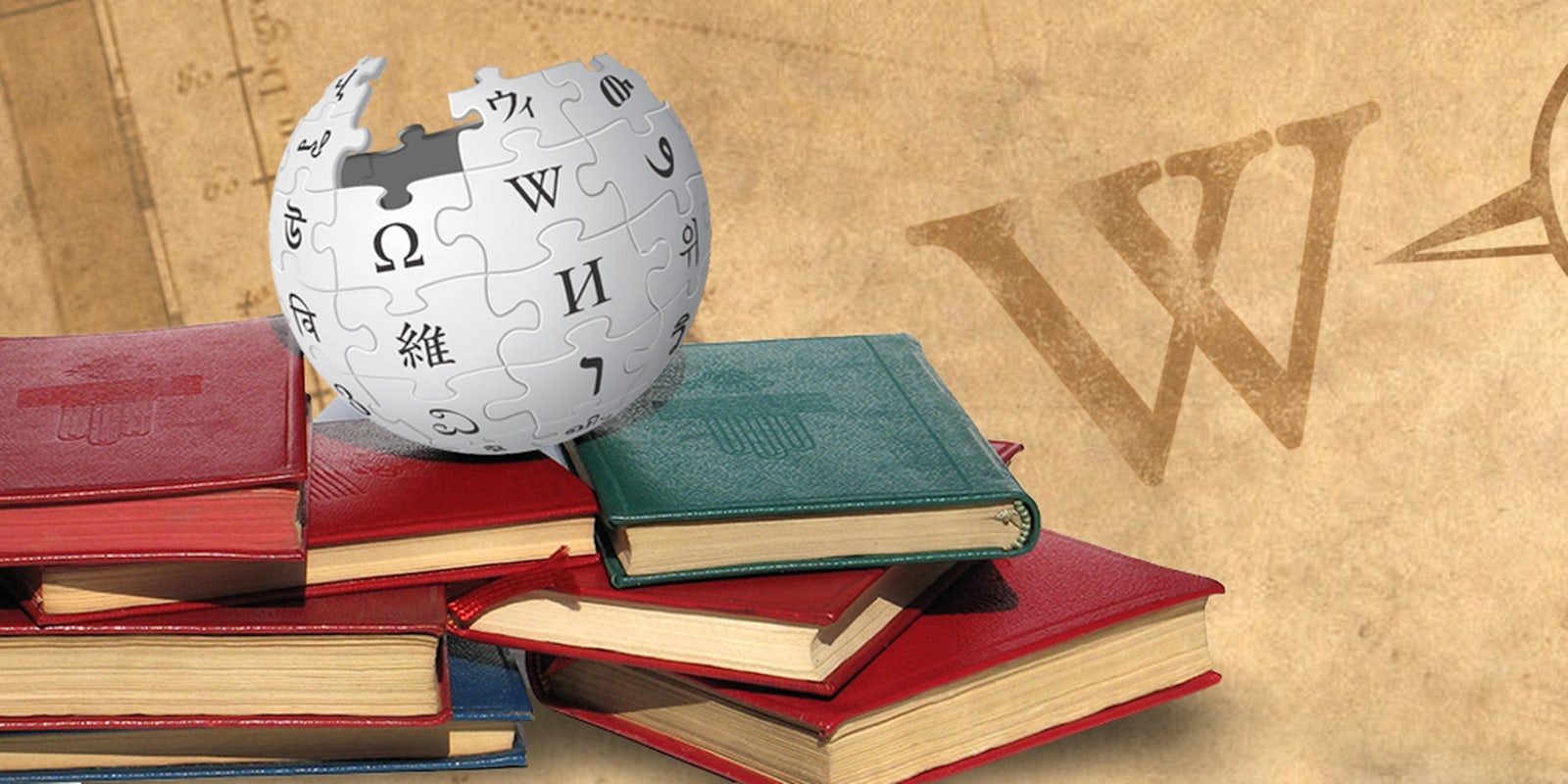William Beutler is a public relations professional and a Wikipedian—a combination that would likely infuriate most other users of the free encyclopedia.
For years, editors of Wikipedia, the world’s largest and most popular online encyclopedia, have been pulling their hair out and going to war over how to handle the issue of public relations editing on the site. Though some are in favor of a transparent form of paid advocacy editing, ideological purists insist that any sort of quid pro quo content changes must be completely banned.
But Beutler and a group of his fellow marketing professionals want to change the relationship their industry has with Wikipedia. They began that long journey Tuesday by making a pledge to the Wikipedia community promising to better understand and respect the community’s rules.
The firms behind this promise are trying to undo the damage done by other PR companies who’ve chosen to blatantly disobey Wikipedia’s rules rather than engaging with its editors. These nefarious actors used underhanded tactics like sockpuppetry—in which multiple dummy accounts are used to mask the edits of a single paid editor—to get around the community’s ethical guidelines. This has only worsened the relationship between marketing firms and Wikipedia.
Beutler thinks these companies have given his entire industry a bad reputation.
“As someone who considers himself a Wikipedian but who also does public relations, it annoys me that whenever you hear about public relations and Wikipedia in the news it’s because someone got caught with their hand in the cookie jar,” Beutler said.
In February, Beutler convened a meeting of representatives from some of the nation’s largest advertising and marketing firms, along with active Wikipedia editors and scholars for a discussion about how marketers might better engage with the notoriously prickly community.
In what Beutler hopes is the first step in improving relations between PR professionals and Wikipedians, he has released a consensus statement from this so-called Donovan House meeting, promising that those marketing firms represented will strive to “better understand the fundamental principles guiding Wikipedia and other Wikimedia projects.” Furthermore, the agencies promised to “act in accordance with Wikipedia’s policies and guidelines, particularly those related to “conflict of interest.”
The participating agencies included Ogilvy & Mather, Fleishman Hillard, Ketchum, Edelman, Peppercomm, Burson-Marsteller, Porter Novelli, Voce Communications, Allison+Partners and MDC Partners.
Beutler, who runs the firm Beutler Ink, think’s there is a significant gap to close between his industry and Wikipedia, and that the burden is upon him and his peers to embrace the site’s culture and rules.
“It’s amazing to me that 13 years in [to Wikipedia’s existence] most people don’t know how the sausage gets made,” Beutler said.
The most important rule on Wikipedia dictates that all articles should be written from a Neutral Point of View. Wikipedia co-founder Jimmy Wales coined the “bright line” rule to describe what is or is not neutral editing. Wales said that “if you are a paid advocate, you should disclose your conflict of interest and never edit article space directly.”
Though Beutler admits he used to edit articles directly on the behalf of clients prior to 2012. He and other PR professionals like Tony Ahn, have since sought a way to effectively promote their clients interests on Wikipedia that stays on the right side of the bright line—at least technically.
Beutler now discloses all his client relationships and doesn’t make direct article edits himself. Instead, using Wikipedia talk pages behind the scenes, he will try and communicate with impartial volunteer editors to make changes on his behalf. This way, it’s still a neutral party dictating what content should or shouldn’t be on the site.
This could be an effective solution for other marketing firms, who have a strong interest in utilizing Wikipedia to enhance their client’s reputation. After all, as one of the most visited sites in the world, Wikipedia pages often top the search engine results for any given person or company.
“Ogilvy has long had a policy that we do not edit Wikipedia for our clients and we strongly discourage our clients from editing as well,” Ogilvy’s managing director Marshall Manson told the Daily Dot. “We often get requests, however, and it’s clearly an important platform for our clients.”
One of the staunchest critics of paid advocacy editing is Wales himself. In response to Ahn’s attempt at transparent Wikipedia marketing last year, Wales called his actions “revolting.”
That being said, Wikimedia, the non-profit organization that backs the Wikipedia project, has bumped up against the bright line more than a few times itself. Wikimedia GLAM projects, in which libraries, museums and other such institutions become actively involved in editing and improving certain areas of Wikipedia—often employ paid editors. In one such controversy from earlier this year, one of Wikimedia’s largest donors was accused of using part of her organization’s $3.6 million donation to fund a paid editor position at Harvard University’s Belfer Center—an academic institution run by her husband.
Beutler offers up the existence of GLAM projects, as evidence that paid editing is impossible to avoid, even for the most devote Wikipedians. So rather than banning it outright, he believes that conversations should begin that will help integrate professional marketing with the site.
Since releasing the Donovan House statement Tuesday morning, there hasn’t been much direct response from rank and file Wikipedians yet. Regardless of what kind of reception these overtures are met with, Beutler and his colleagues expect they have a long road ahead of them.
“We want a conversation. It’s as simple as that. And we appreciate that it will take a long time—and some real action on the part of the PR industry—to demonstrate our sincerity,” Manson said.
Illustration by Jason Reed


